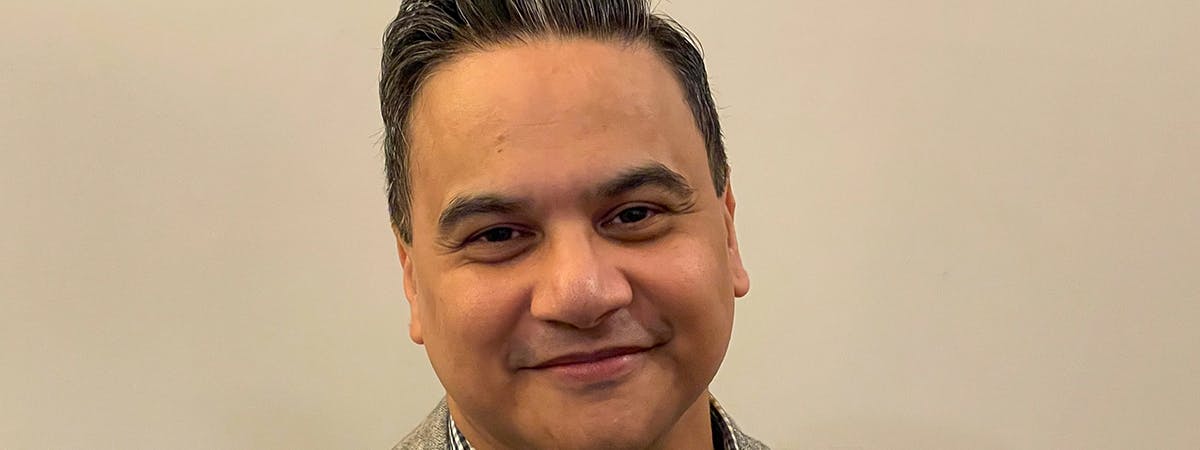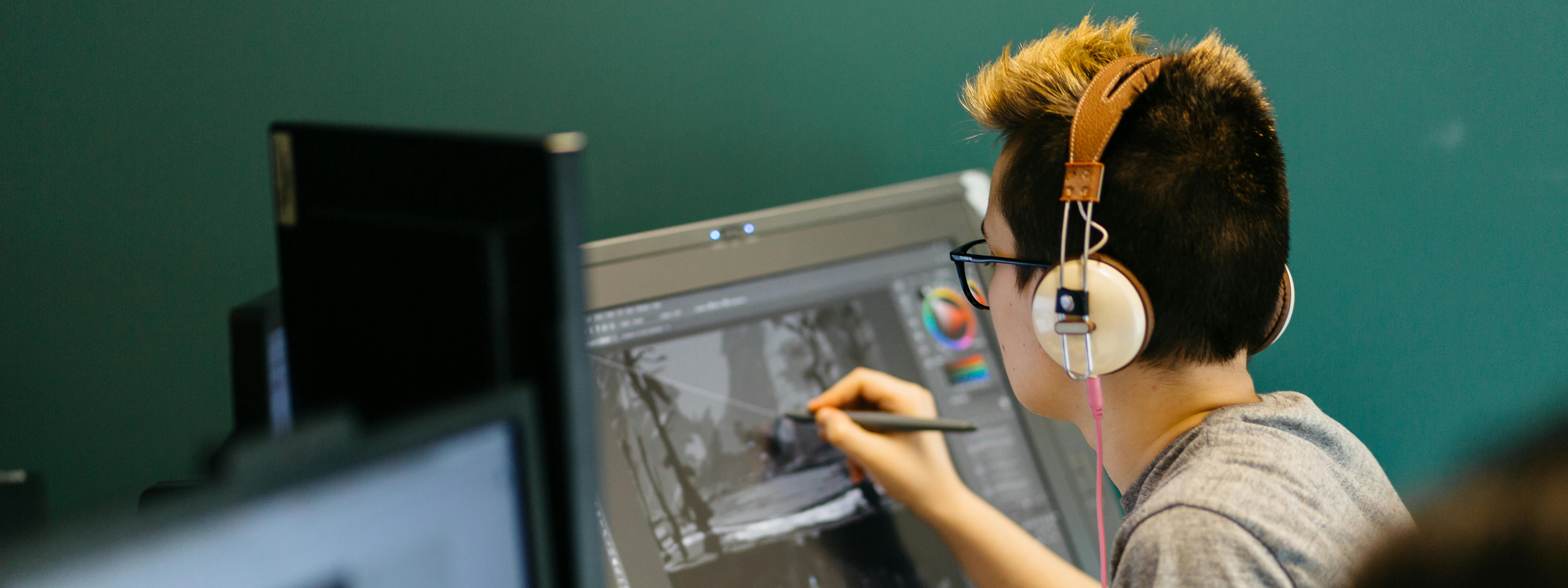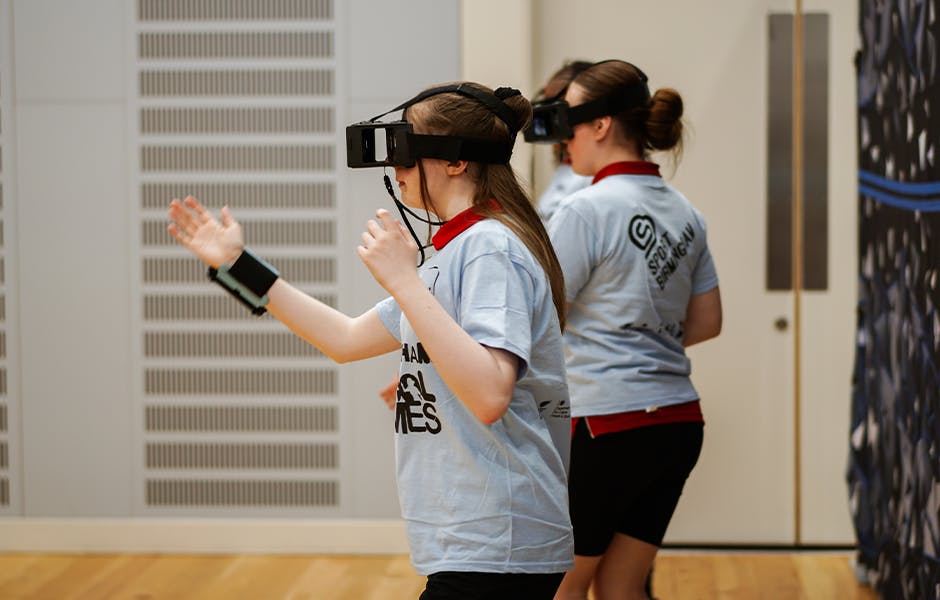Over the past year most of us have become increasingly reliant upon digital platforms and technology in order to feel a sense of 'normal life'. Some organisations have even created virtual worlds for employees to have meetings with colleagues, reflecting a real-life office. We caught up with Associate Professor of Games Design, Zuby Ahmed, who has been working on an exciting project constructing a virtual representation of our Birmingham City University campus. He investigates the materiality of such virtual worlds, and the potential they might bring to business.
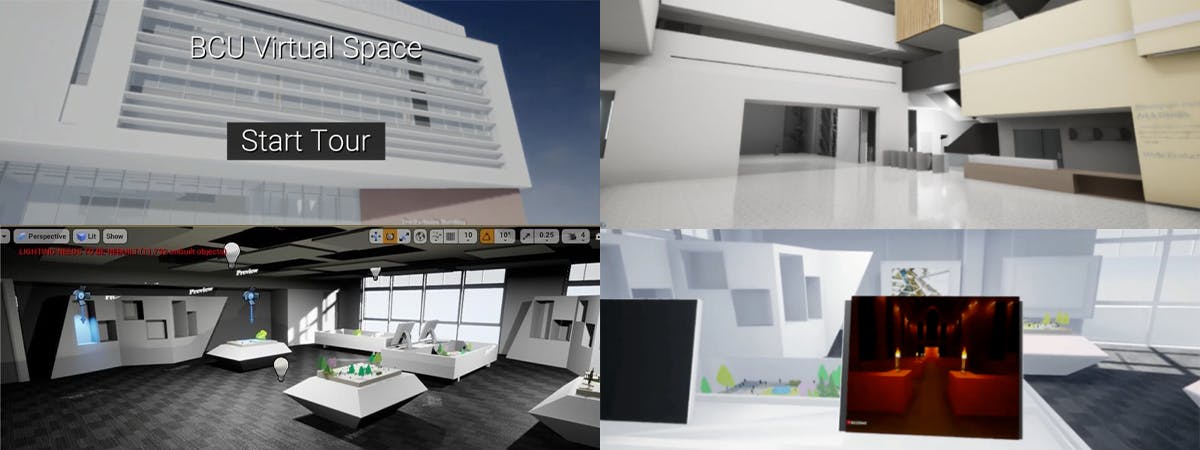
And this 'materiality' is what?
In my spare time I have been working collaboratively with Lucas Hughes, Course Director for Landscape Architecture, and four undergraduate students from School of Games Film and Animation, Jade Langton, Henrique Teixeira, Ben Culff and Courtney Page. We're developing a brand-new virtual solution in the form of a digital representation of our BCU campus. The project will have multiple functions and purposes, including the ability to showcase graduate work, teach classes and socialise with others. Fundamentally, the project explores innovation in interaction. Leonardi (2010) argues that 'when materiality is understood to represent the practical instantiation and the significance of an artifact, digital artifacts can clearly be seen to have materiality'. This is where I believe our project will hopefully have exciting potential and impact.
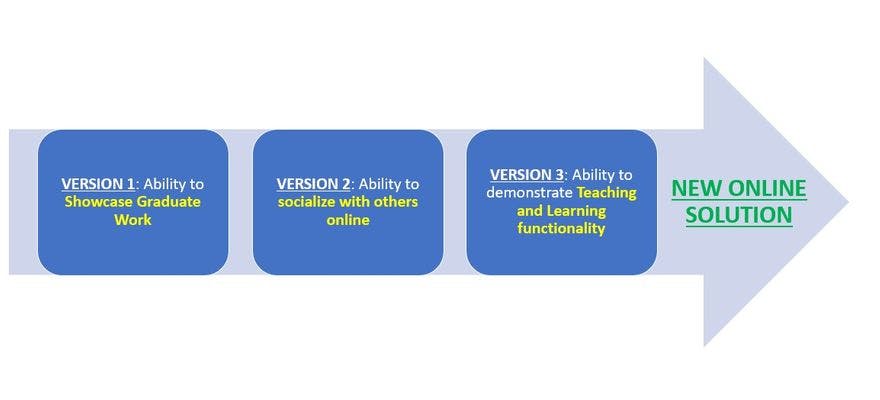
So what's the big deal?
Considering the COVID-19 situation, this project was originally designed to demonstrate graduate work in a virtual space, but it’s now working out to be so much more! I’m so excited by the potential and also really pleased with the feedback we’re getting, along with how many people want to get involved! As the project has been taking shape, the team and I have been very careful and considerate towards how we interact with each other to create the project; we’re using an iterative development approach, combining Agile Project Management with the Double Diamond.
As a development team, we are also taking deeper dives into each other’s intrinsic and extrinsic motivations (Herzberg, 1959), channeled within our personal goals (Pink, 2010). This has resulted in us interacting within affective work processes, whilst considering how our audiences interact in these physical and digital spaces, ultimately within a gamified educational setting (Giannetto, Chao & Fontana, 2013; Juul, 2003; Veale, 2015).
Now what?
I’m hoping that this new virtual representation of the actual physical space at BCU, will allow individuals the opportunity to explore innovative methods of interacting, with both the physical and digital, simultaneously and symbiotically. I’m excited to see how researchers use what we are creating to further explore the notion that ‘what may matter most about “materiality” is that artifacts and their consequences are created and shaped through interaction’ (Leonardi, 2010). The potential to develop new processes and methods for interaction using this work is already proving popular. New collaborations are emerging, exploring opportunities to work cross faculty and with industry partners to, say, create virtual shop fronts for actual physical stores, selling digital representations of actual physical objects. These interactions will allow people to establish new networks, new processes and routines, and ultimately explore the creation of new organisations and institutions of practice.
Games, Film and Animation Courses
Find out more about our courses
